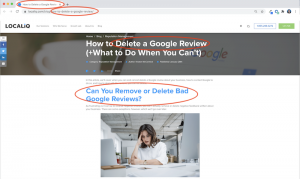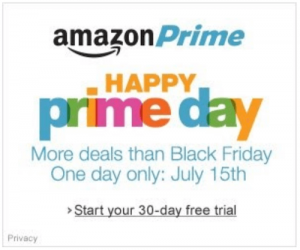by Oren Boiman, Columnist, November 22, 2016
Traditional legacy marketing tactics and strategies are meaningless to SMB millennial marketers. Millennials are disrupting traditional marketing approaches without even realizing it. By embracing the channels and tactics they know best in their personal lives, millennials naturally create digital-first marketing strategies in their work life.
Traditional channels like TV, radio, and print ads are distant considerations or simply not used. To further illustrate this point, when was the last time you heard a millennial say, “I work in advertising.” They don’t even use the word advertising; instead, it’s marketing. As the first digitally native generation, SMB millennial marketers choose social media to support the entire marketing discipline, across earned, owned and paid media, and it may be the key to understanding why advertising, as we know it, is changing so rapidly.
Our new survey reveals that millennials spend more than half (58%) of their marketing budget on digital media, compared to baby boomers, who spend only 14%. Stated differently, millennials are three times more likely than baby boomers to spend the majority of their marketing budget on digital marketing. Equally as profound but slightly more nuanced are the ways in which they deploy digital media.
In contrast to legacy businesses, millennials at SMBs look at the customer journey through a unified lens, driving the entire customer journey from awareness, lead generation, revenue, creation and engagement via digital channels with a focus on social media. The focus on social and the cultural implications impact the ways marketing creative is conceived and deployed. It’s another subtlety that is critical to understanding millennials’ success.
For millennial marketers, social media has surpassed traditional “word of mouth” marketing and completely replaced TV advertising in one fell swoop, because it allows them to drive relevant conversations and have greater reach by amplifying their immediate sphere of influence with tremendous scale.
One can envision a giant social web composed of concentric circles with the marketer in the middle, friends and family a ring out and an endless supply curve of target-rich potential customers waiting just beyond. In fact, 68% of millennials depend on social media ads to generate brand awareness and 60% depend on it to drive revenue.
In the name of drama, let me repeat that point: Every touch point of the customer journey is driven by the mechanics of digital media and colored by nuances of social culture.
By contrast, baby boomers still heavily rely on traditional marketing channels and tactics, informed by an era of TV, clinging to a notion that broadcast messaging and distribution is the best method. To underscore this point, our SMB marketing report found that:
- One in three baby boomers invests in TV advertising, compared to 0% of millennials
- Baby boomers are 112% more likely to invest in radio advertising than millennials
- 92% of millennials lead with social media in their marketing strategy, while 79% of baby boomers lead with traditional “word of mouth”
- Almost half (41%) of millennials spend the bulk of their marketing budget on mobile media while less than 10% of baby boomers rely on the same
Another factor driving the digital divide between generations is video. The majority of millennials (88%) are currently using video or want to use video in the near future compared to only 40% of baby boomers. The reason for this difference is simple. Millennials understand how to tell stories with video, target audiences, and employ social media to expand their reach, and baby boomers don’t.
One common misconception that baby boomers make is they treat social media like traditional advertising channels. Legacy marketers create product overview videos to share on social channels and hope their audience finds the content. Millennials don’t make that mistake. Instead, they leverage branded lifestyle video stories, providing a context of customer empathy, an inside look at the company and a chance to feel a part of the journey.
SMB marketing goals have not changed, they remain focused on building brand awareness, generating new customers and maintaining loyalty with existing customers. However, as millennials take the helm of marketing budgets their approach to accomplishing these goals has changed at an astounding pace and in radical ways. Businesses of all sizes need to understand a new worldview, an evolved consumer culture, and the media, tactics and messaging that compliment an evolved marketplace or risk becoming invisible.
MediaPost.com: Search Marketing Daily
(69)





